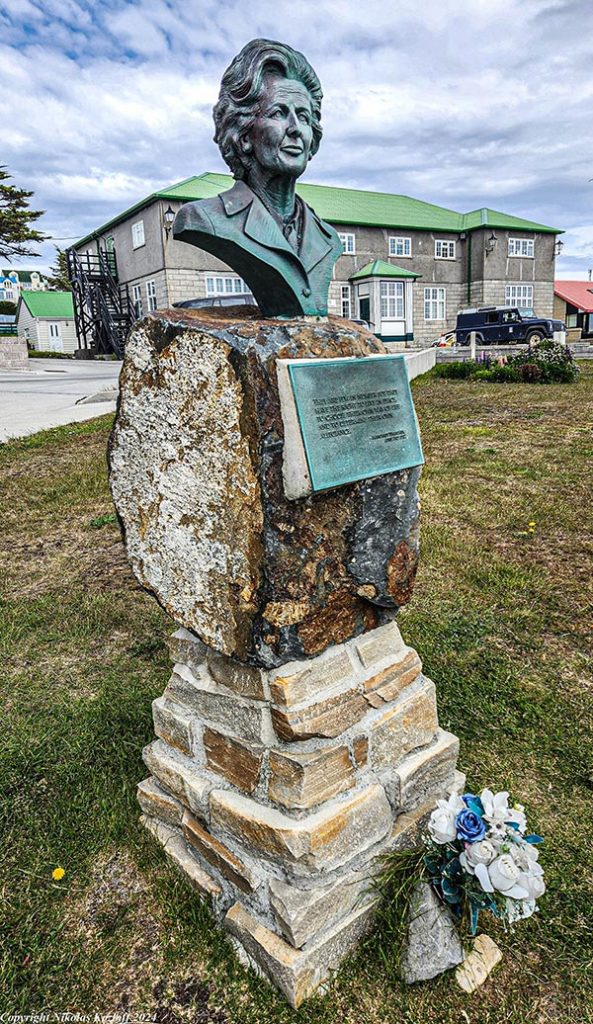
Vernet and the Curious Case of Gaucho Rivero
Darwin visited the Falklands Islands twice, in 1833 and 1834, spending more time in the archipelago than he did in the Galápagos. At the time, the British government had grown concerned about U.S. naval activity in the South Atlantic. Indeed, the Americans had been at odds with one Louis Vernet, a businessman and entrepreneur who was running the settlement of Port Louis in the name of the Buenos Aires government. The U.S., however, did not recognize any sovereign claims over the islands. In early 1833, the British sent a ship to Port Louis to assert control in an effort to prevent other countries from staking a claim.
In March, 1833 one of Vernet’s deputies presented his papers to none other than Robert FitzRoy, who happened to be in port with Darwin and the Beagle. FitzRoy, however, made it clear that Argentine sovereignty would not be encouraged (Darwin himself expressed no strong views about British claims). In August, a group of gauchos (men generally of Latin American origin who work on horseback with cattle) revolted in Port Louis. The gauchos were assisted by a number of Charrúa indigenous people (for more on the Charrúa, see here). Incensed over being paid in worthless paper tokens, the conspirators killed five leading members of the settlement, including a Scot, a Frenchman, a German, an Argentine and an Irishman.
The gaucho revolt, however, fizzled. Antonio Rivero, leader of the effort, handed over his accomplices and surrendered in a bid for clemency. Pursuing his scientific research, Darwin later rode into the countryside accompanied by the only two gauchos who hadn’t been involved in the murders. “They had no temptation to murder me,” Darwin remarked, “and turned out to be most excellent Gauchos.” To this day, Gaucho Rivero continues to hold symbolic resonance, with some claiming he was revolting against British rule even though victims represented the interests of Vernet (Argentina even passed a “Gaucho Rivero Bill” banning vessels from docking in Argentina en route to the Falklands). Perhaps, Rivero wasn’t revolting against the British at all, but rather committed an apolitical act of murder, or alternatively did not care for Vernet’s system of debt peonage.
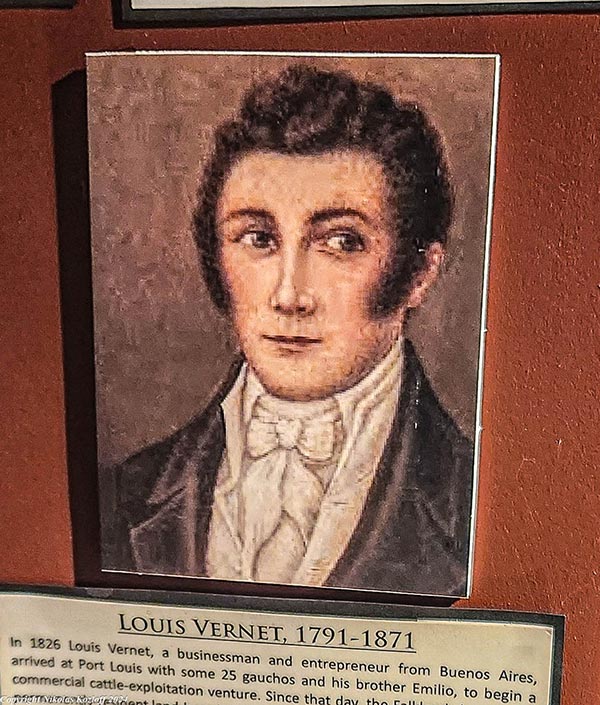
Whatever the case, Gaucho Rivero continues to resonate with Argentine nationalists and leftists rallying to his name in a never-ending historical controversy, despite the fact that Argentina did not exist as a nation state at the time, and Vernet was originally a Huguenot merchant from Hamburg. Since the days of Vernet, conflict over the Falklands has escalated leading to the 1982 Falklands War. More recently, newly-elected President Milei has engaged in saber rattling. In Puerto Madryn, I came across a memorial to the war.
Later, in the Falklands’ Port Stanley, evidence of exaggerated British nationalism amidst memorials.
Car window sign on Carcass Island in the Falklands

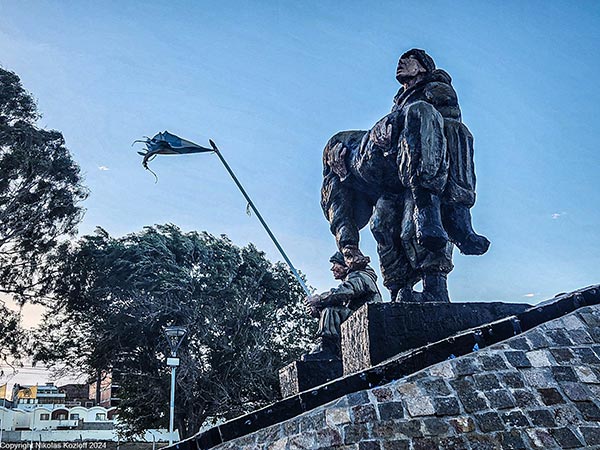
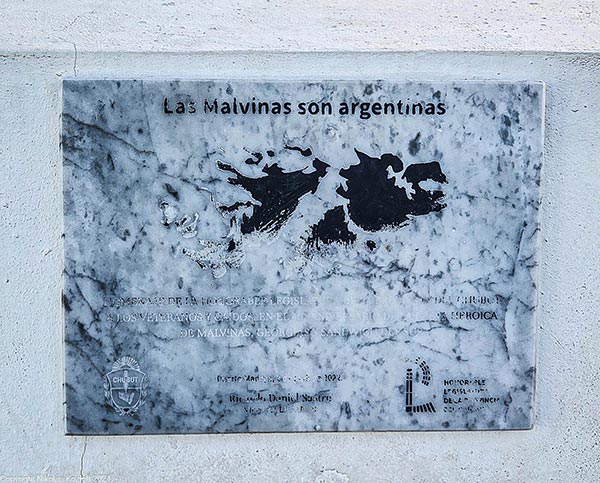
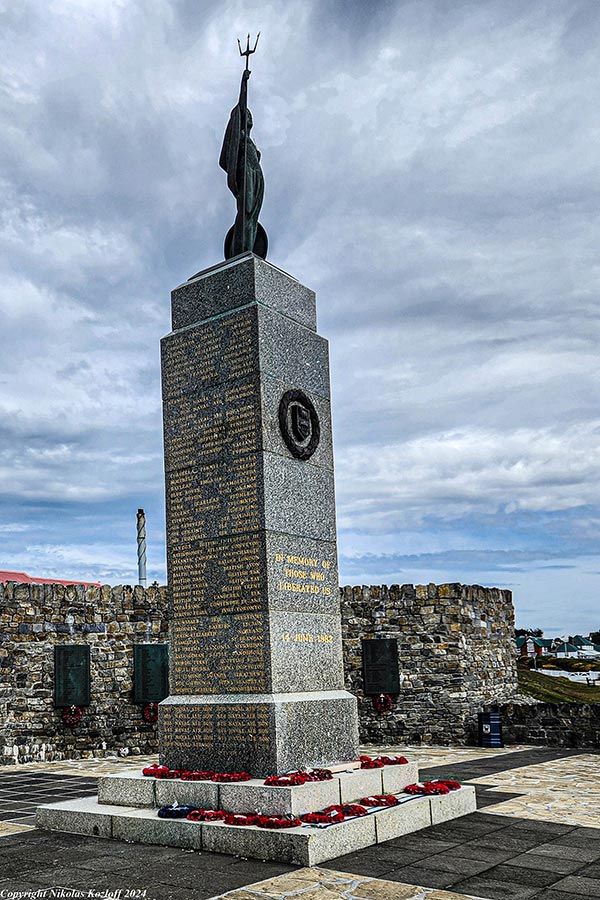
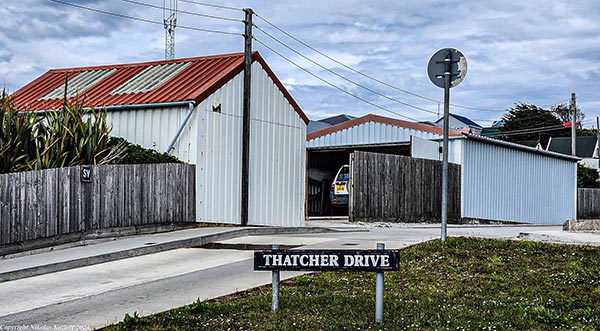
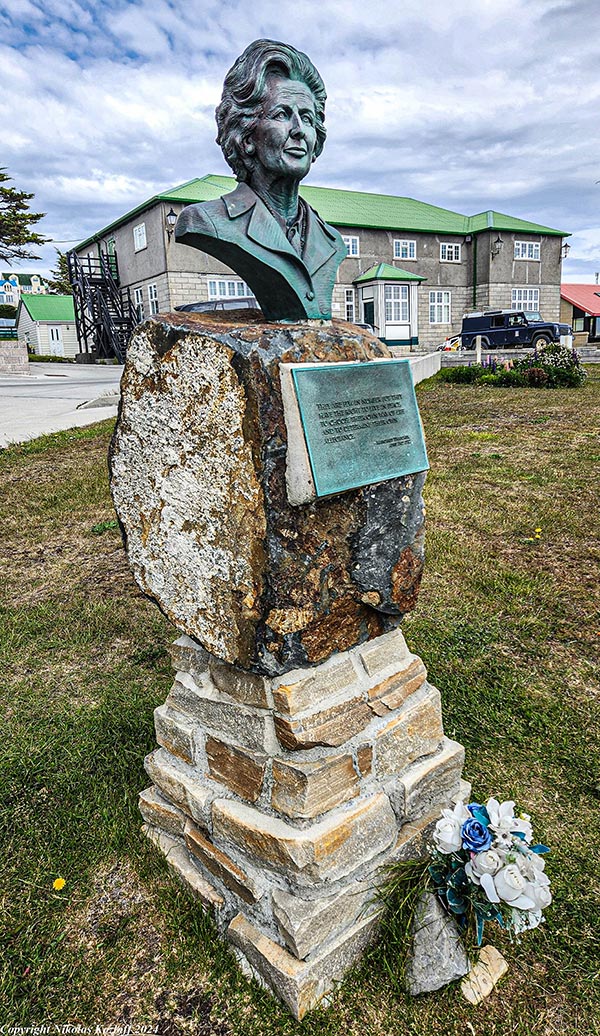
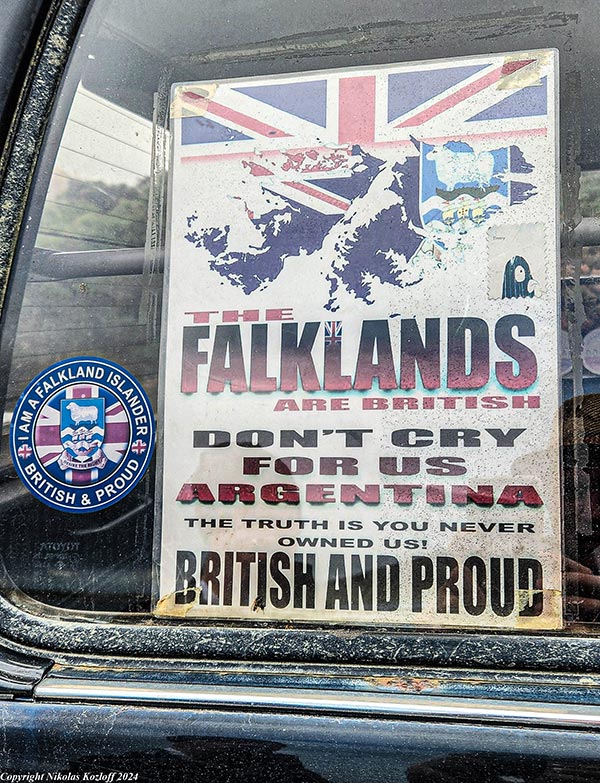
Leave a comment